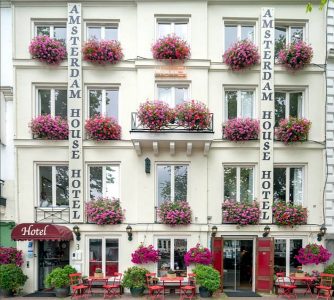Soon available in German
Eyes on Animals police training manual officially adopted by the Belgian government
In 2010 Eyes on Animals initiated trainings for police officers in Belgium on the EC 1/2005 legislation (Protection of Animals During Transport). Subsequently, the Belgian Ministry of Health, Food, Safety and Environment (Federale Overheidsdienst VVVL) officially adopted the Eyes on Animals police training manual for use within their force, making it an official Belgian government document. Both the Eyes on Animals and the Belgian Ministry logo are on the cover page and the Belgian Ministry paid for the printing of 2000 copies.
Eyes on Animals helped stop castration of piglets in Holland and spread information abroad
Having published several reports on the phasing out of pig castration here in The Netherlands, Eyes on Animals was invited to participate in the EU workshop on pig castration and alternatives in Brussels. Speakers from all over Europe, primarily from the pork industry but also from agricultural universities and meat research institutes, were present. Being able to share our views in an event like this is a great opportunity to improve the welfare of male piglets.
Headspace for adult bovine animals increased
Throughout 2010, Eyes on Animals focused its attention on inspecting many double-deck cattle trucks to draw attention of the authorities for the need to give cattle more headspace during transport. During inspections Eyes on Animals noticed on several occasions that cattle in double-deck transport trucks had their backs almost touching the ceiling about. As a result, the cattle were not able to maintain their natural posture, which could in turn cause serious injury to head and back. Our reporting and lobbying on this issue, together with research from Wageningen University revealing that 10 cm headspace leads to serious physical problems for the animals, finally convinced the Dutch government to decide that the headspace for adult bovine animals should indeed be increased to at least 25cm and cattle heading to slaughter no longer be transported on two-levels unless the vehicle was a specially designed “cattle-cruiser”.
Monetary administrative penalties for transport companies that violate animal welfare regulations
Thanks partly to Eyes on Animals reporting violations to the Dutch authorities on a regular basis, the Dutch government decided that from now on livestock transport companies caught in the Netherlands will be forced to pay monetary administrative penalties (MAP’s). The amount of these fines are between €500 for less serious violations to €6000 for serious animal suffering. MAP´s are advantages because they can be dealt with quickly and directly by the NVWA, and not await judgment by the public prosecutor.
Eyes on Animals invited by NVWA to discuss observations at Hedel horse market
Our reports to the NVWA about our inspection at the yearly horsemarket in Hedel led the NVWA to invite us to their head office. During our inspection we had observed and documented numerous important animal-welfare violations. In our meeting with the NVWA we discussed these observations in greater detail and also thought about which steps Eyes on Animals and the NVWA can take to prevent problems in the future. NVWA is an important partner in making sure animal welfare regulations are being enforced. Therefore meetings like this are of great importance.
Welfare workshops for livestock lorry drivers
Through close working relationships with transport companies Eyes on Animals provided 2 training days for 30 drivers to educate and reinforce good practices in the transport and handling of farm animals. Aim of the training was to improve animal welfare and assist the drivers in better understanding the seriousness of their legal duties during transport. We also discussed animal behaviour and how knowledge of this helps in reducing stress for the animals during loading and unloading. Each driver was given an Eyes on Animals training brochure, with their legal duties clearly written inside as well as animal behavior tips. Many drivers showed that they were motivated and open to learn what they can do to improve the welfare of the animals on board of their trucks.
Improvements at livestock markets, slaughterhouses, during transport and at farms in the Benelux
By either working directly with industry or by asking officials to increase pressure, Eyes on Animals helped prevent and alleviate suffering at livestock markets, slaughterhouses, during transport and at farms in the Benelux.
Improved conditions at several livestock markets:
- unfit animals are no longer accepted for sale but confiscated and euthanized
- animals are given water
- lactating cows are milked
- hitting and rough-handling is less tolerated
- loading conditions are monitored
- some perpetrators have been prosecuted
Improvements at several slaughterhouses:
- unfit animals being euthanized instead of accepted into the slaughterhouse
- rubber stoppers are put on gates to minimize the noise
- restraining equipment is being inspected at some plants to avoid animals being incorrectly stunned
- slightly injured or weak animals are now given bedding or floor heating in the waiting pens of some plants
Improved conditions during transport:
- imminent legislation to be passed in the Netherlands so that cattle be given more headspace
- pig transports in the summer have lower loading density
- some inspectors are now putting limitations on export when the weather is very hot or very cold
- several trucks have been confiscated and companies have had their license to transport animals revoked

